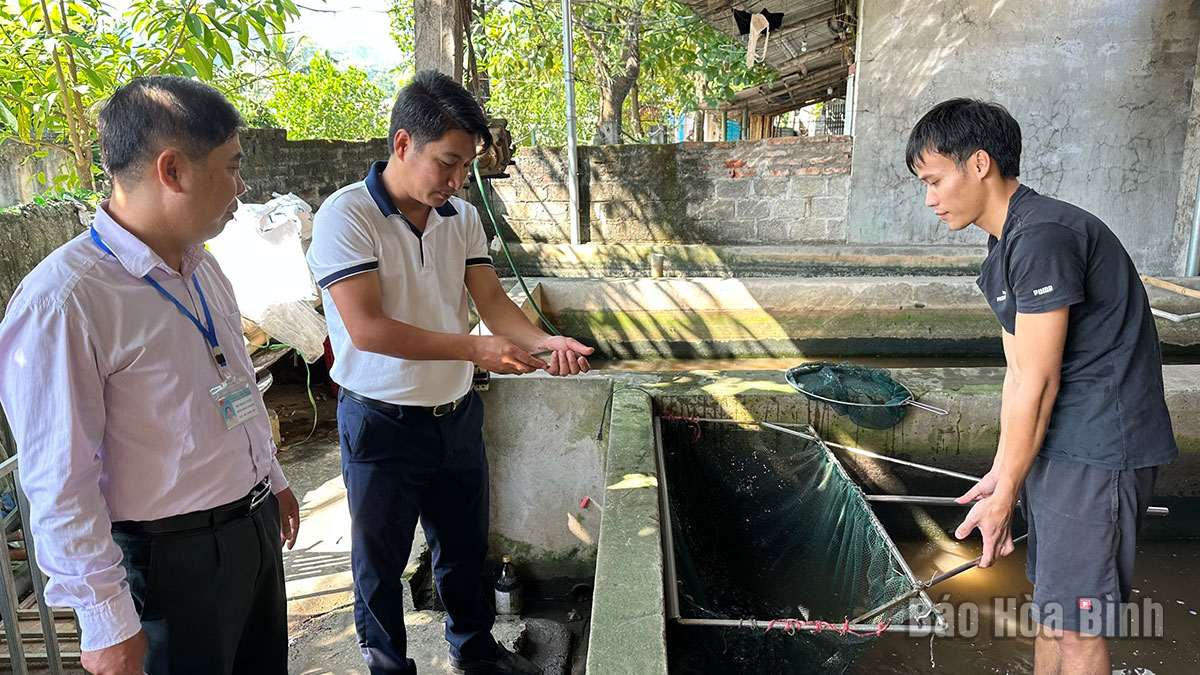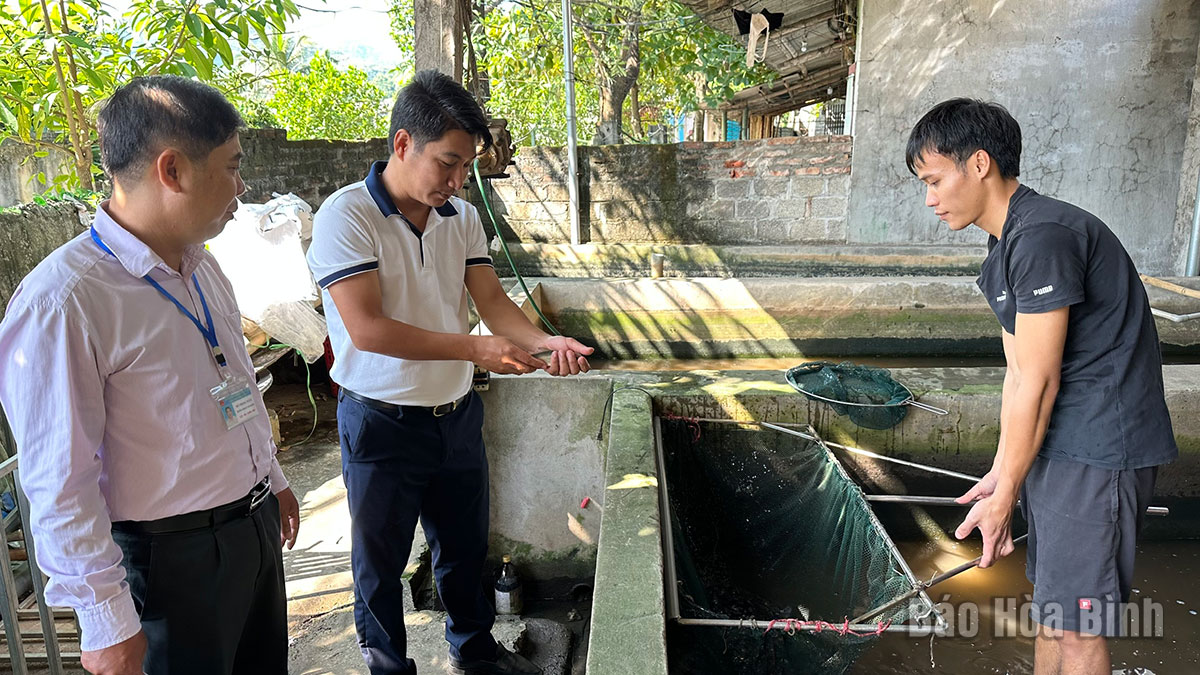
(HBO) – With a quite large system of rivers and lakes and Hoa Binh hydropower reservoir, Hoa Binh province has potential and strengths for aquaculture exploitation and production.
Staff from the fishery sub-department check the quality
of fries before supplying them to the market.
Caged fish farming in the Hoa Binh hydropower reservoir has been developing for
years. Now, there are about 4,940 fish cages in the reservoir, and most of the cased-fish
farms have applied advanced technology, mesh cages, and iron frames. Production
scale gradually shifted from small to larger concentrated production with
advantageous products. The private economic sector deeply participates in
aquaculture production, helping to boost high-quality caged-fish farming.
Therefore, the province's aquatic products in general and Da
river shrimp and fish in particular have strongly expanded to markets outside
the province, especially gradually gaining a foothold in the Hanoi market.
However, reality shows that the proportion of production value
of the fisheries industry in the Hoa Binh reservoir area is not commensurate
with its potential and strengths. Not many fish varieties with high
productivity, quality, and economic value are put into production. The form,
scale, and scope of cooperation in aquaculture do not meet the requirements of
commodity production and are unsustainable. Few businesses have poured large
investments into aquaculture.
Currently, Hoa Binh province aims to develop farming of high-value aquatic
species, focusing on raising caged- fish on large reservoirs for processing and
export.
Accordingly, the province has directed the authorities to study
and find varieties with high economic value, and build a model of raising fish
fingerlings in cages to proactively supply sufficient fingerlings.
The province targets to apply clean and sustainable aquaculture
technology and promote linkage from fries production, farming, processing, and
marketing. It is strictly prohibited to use chemicals that negatively impact
the environment. Agencies must strictly inspect and monitor environmental
developments, promptly warn of disease risks and provide fish farmers with
market information so that they can choose suitable species to raise.
The provincial People's Committee issued a directive document on strengthening
food safety management in aquaculture and trading for domestic consumption and
export.
The committee assigned specific tasks to departments, agencies,
and People's Committees of districts and cities to ensure the quality and food
safety of local agricultural products.
Particularly, the Department of Agriculture and Rural
Development was requested to direct affiliated units to strictly manage the
issuance of food safety certificates to establishments.
The department was asked to coordinate with departments,
agencies and People's Committees of districts and cities to organise programmes
to promote specific agricultural, forestry and fishery products of the province
in domestic and international markets.
For organisations and individuals cultivating and trading
aquatic products, the provincial People's Committee requires them to apply
technical, scientific and technological measures in aquaculture. They are not
allowed to use banned chemicals and antibiotics. They are urged to regularly
upgrade and renovate facilities to improve product quality and packaging
designs to meet consumer tastes.
Producers and traders are urged to actively participate in
domestic and foreign trade promotion programmes to find partners, especially in
foreign markets. They are advised to keep updating technical barriers and
regulations on the quality and food safety of aquatic products of the importing
country to avoid violations, economic losses as well and loss negative impacts
on the local products’ reputation.
The Standing Board of the Hoa Binh provincial Party Committee has agreed in principle on a proposal by the Standing Board of the Party Committee of Hoa Binh city to gather feedback on the city’s 1:2000 zoning plan, which forms part of its broader urban development strategy.
Hoa Binh province has made notable progress in public administration reform and digital government development, with the satisfaction index among citizens and businesses reaching over 84%, according to recent government evaluations.
Thanks to great efforts by local authorities in recent times, the governance and public administration performance of Mai Chau district has been significantly improved.
In the afternoon of June 6, the Party Committee, the People's Council, the People's Committee and the Fatherland Front of Lac Son district solemnly held a meeting to celebrate the 139th anniversary of the district's founding (1886–2025) and the 79th anniversary of the establishment of the district's Party Committee (1946–2025). There was the attendance of Mr. Bui Van Thang, the Vice Chairman of the Provincial People's Council; Mr. Quach Tat Liem, the Vice Chairman of the Provincial People's Committee; Ms. Dang Bich Ngoc, the Deputy Head of the National Assembly Delegation of the province; as well as the former leaders of the province and district through various periods, who are the natives of the district.
Implementing the Politburo’s Resolution No. 57-NQ/TW on breakthroughs in science – technology, innovation, and digital transformation is a golden opportunity for the northern mountainous province of Hoa Binh to renew growth model, improve competitive edge and shorten digital gap.
Resolution 57-NQ/TW, issued by the Politburo on December 22, 2024, identifies sci-tech, innovation, and digital transformation as strategic breakthroughs to build a developed and prosperous nation. In Hoa Binh province, this spirit is not just a slogan, it’s being put into action through concrete initiatives that form a "new development triangle”: digital citizenship, digital economy, and digital administration.



